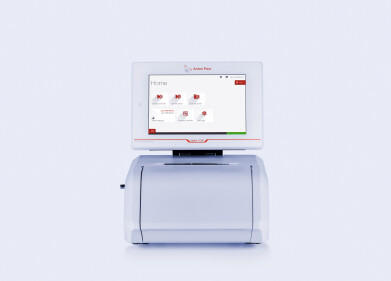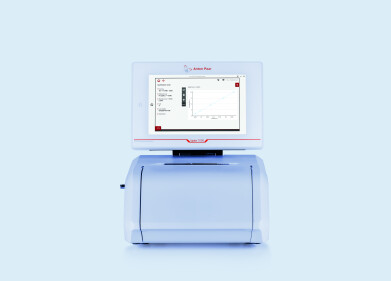Mass Spectrometry & Spectroscopy
How High-Fat Milk Makes You Age Faster
Feb 18 2020
While some purists swear by full cream milk, a new study from Brigham Young University (BYU) warns that drinking milk with high-fat content can accelerate ageing by 4.5 years. The study involved 5834 adults and found that a preference for non-fat or 1% milk correlates with longer telomeres and slower biological ageing.
The study was spearheaded by BYU science professor Larry Tucker, Ph.D., who says the difference between drinking low-fat and high-fat milk is profound. "It was surprising how strong the difference was," he says. "If you're going to drink high-fat milk, you should be aware that doing so is predictive of or related to some significant consequences."
Full cream milk correlates with shorter telomeres
To investigate the ageing effects of milk, Tucker and his team explored the link between fat content, intake frequency and telomere length, the nucleotide caps on the tips of human chromosomes. Telomeres become shorter with age and shed a tiny portion every time a cell replicates, meaning age inevitably correlates with shorter telomeres.
According to the BYU study, which was published in the journal Oxidative Medicine and Cellular Longevity, drinking high-fat milk adds 4.5 years worth of ageing to telomeres. Specifically, for every 1% increase in milk fat content telomeres lost 69 base pairs of length, or the equivalent of 4.5 years of biological ageing.
Understanding the pros and cons of dairy
"Milk is probably the most controversial food in our country," says Tucker, who doesn’t' sugar-coat the merits and pitfalls of the popular dairy product. "If someone asked me to put together a presentation on the value of drinking milk, I could put together a 1-hour presentation that would knock your socks off. You'd think, 'Whoa, everybody should be drinking more milk.' If someone said do the opposite, I could also do that. At the very least, the findings of this study are definitely worth pondering. Maybe there's something here that requires a little more attention."
Almost 50% of the study participants drank milk daily, while 25% consumed the dairy product at least weekly. Around one third preferred full-fat or whole milk, with 30% choosing 2% milk. Just 10% consumed 1% and around 17% stocked their fridge with non-fat milk. 13% of participants drank no cow's milk.
Experts call for increases awareness surrounding fat content
For Tucker, the findings support the current Dietary Guidelines for Americans suggesting adults drink low-fat or non-fat milk. "It's not a bad thing to drink milk," says Tucker. "You should just be more aware of what type of milk you are drinking."
Used heavily in diagnostic medical laboratories, mass spectrometry has emerged as a critical type of analysis. Spotlighting the rapid growth rate of mass spectrometer techniques, 'Recent Advances in HRAM Mass Spectrometry' features expert commentary from Pat Perkins, David Weil, and George Stafford.
Digital Edition
Lab Asia 31.6 Dec 2024
December 2024
Chromatography Articles - Sustainable chromatography: Embracing software for greener methods Mass Spectrometry & Spectroscopy Articles - Solving industry challenges for phosphorus containi...
View all digital editions
Events
Jan 22 2025 Tokyo, Japan
Jan 22 2025 Birmingham, UK
Jan 25 2025 San Diego, CA, USA
Jan 27 2025 Dubai, UAE
Jan 29 2025 Tokyo, Japan



















